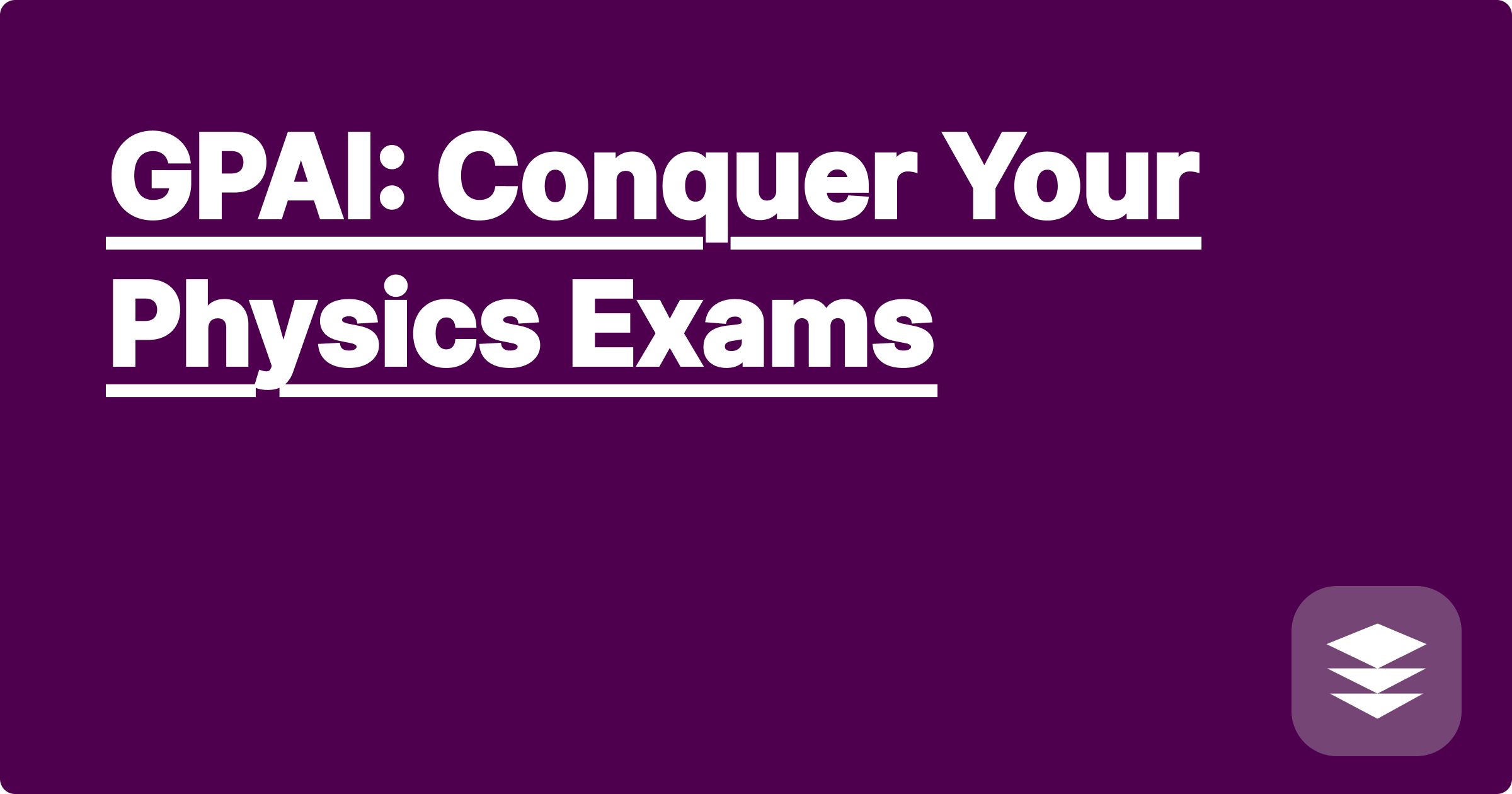
The pressure cooker of STEM education, particularly in physics, can feel overwhelming. Balancing complex concepts, challenging problem sets, and looming exams leaves many students feeling lost and discouraged. But what if there was a way to not only survive but thrive in this demanding environment? Artificial intelligence (AI) is rapidly transforming how we learn and study, offering a powerful suite of tools to help STEM students conquer their academic challenges and unlock their full potential. This isn’t about replacing hard work, but about working smarter, leveraging AI to personalize your learning, identify your weaknesses, and optimize your study time.
This blog post will explore how AI can be your secret weapon in tackling physics exams, focusing on a hypothetical AI learning platform called GPAI and other readily available AI tools. We’ll delve into practical examples, share actionable strategies, and offer real-world advice born from experience, both successes and failures. Think of this as a conversation with a more experienced student who's been in the trenches and discovered how to leverage AI to gain a real edge.
Physics, with its intricate web of mathematical formulas, abstract concepts, and real-world applications, presents a unique challenge for many students. Often, the difficulty lies not in a lack of effort but in ineffective study strategies. Traditional methods, like passively rereading textbooks or blindly solving problem sets, can be time-consuming and yield limited results. Students may struggle to identify their specific weaknesses, leading to frustration and a sense of being overwhelmed. Furthermore, the sheer volume of information can make it difficult to prioritize and focus on the most critical concepts for exam success. This is where AI steps in, offering a personalized and dynamic approach to learning that can address these fundamental challenges.
AI-powered learning platforms like our hypothetical GPAI, along with tools like Wolfram Alpha, ChatGPT, and Claude, can revolutionize how you approach physics. GPAI, for example, could analyze your performance on practice problems, identifying your weak areas and suggesting targeted learning resources. Imagine struggling with electromagnetism. GPAI could pinpoint your specific misconceptions within this topic, perhaps your understanding of Faraday's Law, and then recommend relevant videos, interactive simulations, or practice problems specifically designed to address that gap in your knowledge. This tailored approach eliminates the guesswork of traditional studying and ensures you focus your energy where it's needed most.
Let's walk through a typical study session using these tools. First, you might use GPAI to create a personalized study plan based on the upcoming exam’s syllabus. Next, you could tackle a set of practice problems within a specific topic, like mechanics. As you work through the problems, GPAI tracks your progress and identifies areas where you’re struggling. Suppose you're consistently making errors related to projectile motion. GPAI would then suggest targeted resources, like Khan Academy videos or interactive simulations on projectile motion, to reinforce your understanding. You can also leverage Wolfram Alpha to check your calculations, visualize complex equations, and even explore alternative solution methods. If you’re stuck on a conceptual question, you can use ChatGPT or Claude to break down the concept in simpler terms, provide real-world examples, or even generate additional practice questions.
Consider a challenging problem involving the conservation of energy. You’ve set up the equation but are unsure how to solve for the final velocity. Wolfram Alpha can step in here, not only providing the numerical solution but also showing the step-by-step algebraic manipulation required to reach the answer. Or perhaps you're struggling to visualize the electric field around a complex charge distribution. Wolfram Alpha can generate a 3D visualization of the field, allowing you to grasp the concept intuitively. For more conceptual challenges, like understanding the difference between inertial and non-inertial reference frames, you can engage with ChatGPT or Claude in a conversational manner. Ask clarifying questions, request examples, and even challenge their explanations to deepen your understanding.
Integrating AI into your study routine requires a strategic approach. Don't simply rely on AI to do the work for you. Instead, use these tools to augment your existing study habits. Start by creating a structured study plan, allocating specific time slots for different topics and utilizing GPAI (or a similar platform) to track your progress. Actively engage with the material, asking questions, seeking clarification, and testing your understanding regularly. Don't be afraid to experiment with different AI tools to find what works best for you. Some tools might be better suited for specific tasks, like Wolfram Alpha for complex calculations or ChatGPT for conceptual explanations. Finally, remember that AI is a tool, not a magic bullet. Consistent effort, active learning, and a genuine curiosity are still crucial for success.
In conclusion, AI is not just a futuristic concept; it's a present-day tool that can empower you to excel in your physics studies. By embracing these technologies and integrating them strategically into your learning process, you can transform your study habits, conquer challenging concepts, and approach exams with confidence. Start exploring these tools today, experiment with different approaches, and discover the power of AI to unlock your full academic potential. Don't just study harder, study smarter. The future of learning is here, and it's powered by AI.